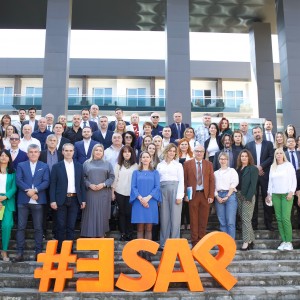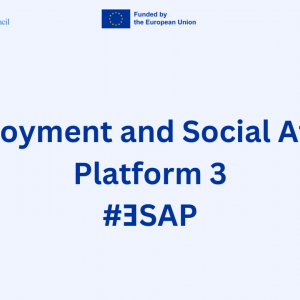Balkan Leaders Adopt Plan for Common Regional Market

At an EU-backed summit, political leaders from the Western Balkans adopted an action plan for creating a common market and a joint environmental agenda for the region.
Leaders from Albania, Bosnia and Herzegovina, Kosovo, Montenegro, North Macedonia and Serbia adopted a plan for a regional common economic market at a summit in the Bulgarian capital Sofia on Tuesday.
The plan envisages a set of measures like reducing cross-border bank charges, removing technical trade barriers, coordinating investment policies, recognising professional qualifications across the region and promoting e-commerce.
“The declaration for a joint regional market is of great importance for the 20 million people living in the Balkan countries. It will help the economic prosperity of the countries and will keep the people in this region,” Bulgarian Prime Minister Boyko Borissov told a press conference.
The summit was held as part of the Berlin Process, an EU-backed initiative to boost regional cooperation among Western Balkan countries and aid their European integration efforts.
The Berlin Process is being jointly chaired this year by neighbouring Bulgaria and North Macedonia. The first an EU member and the second an EU candidate country hoping to soon launch its accession talks.
“The idea for interconnection is in the core of the Berlin Process,” North Macedonia’s Prime Minister Zoran Zaev told the press conference.
He expressed satisfaction that the process “evolved into much more than an initiative for economic cooperation, and is also a platform for dialogue between civil societies and culture connection”.
The EU’s enlargement commissioner Oliver Varhelyi told the summit that a common regional market will “increase the attractiveness and competitiveness of the region and help turn it into an investment hub, interesting also for global investors that are looking to reduce the distance to EU markets”.
He said that a robust investment plan for the region is already in place, to accompany development, including up to nine billion euros of grant funding, complemented by the new Western Balkans Guarantee facility, which should be able to raise investments of up to at least 20 billion euros.
By conservative calculations, Varhelyi said, these investments leveraged could potentially rise the region’s real GDP by 3.6 per cent.
The Balkan countries also agreed on the so-called Green Agenda, which among other things aims to reduce carbon emission to zero by 2050 across the region.
The accent on the regional cooperation at Tuesday’s summit was overshadowed however by a bilateral dispute between the co-chairing countries, Bulgaria and North Macedonia.
Although generally supporting its neighbour’s EU accession, Bulgaria is threatening to block the official start of North Macedonia’s accession talks, which Germany and other EU countries would like to see it begin before the year’s end.
Bulgaria is citing a range of unsolved bilateral obstacles like the disagreement on the existence of the Macedonian language, disagreement over some parts of their shared history, as well as other issues that Bulgaria claims are unfulfilled promises on the part of North Macedonia.
German Chancellor Angela Merkel called for a spirit of reconciliation.
“The Berlin Process is always accompanied by reconciliation regarding the disagreements from the past. I hope that this will also be the case in the future,” Merkel told the joint press conference in Sofia via a video link.
Time to overcome the disagreements is running out. The two countries have roughly until next week to bridge their differences so that EU ministers can unanimously adopt the negotiating framework for North Macedonia, allowing the first inter-governmental session to take place, which will formally mark the start of the EU accession talks.
On Tuesday, before the official start of the Sofia summit, Bulgarian Foreign Minister Ekaterina Zaharieva told media that Sofia not only has a problem with historical issues with North Macedonia but also with the alleged slow response from Skopje on joint infrastructure projects and on joint projects in culture and education.
Zaharieva said that as a way forward, she will propose to both countries’ premiers to convene a meeting of a joint intergovernmental commission set up to implement their 2017 bilateral friendship agreement.
“It has not convened for a year and a half and the issues have piled up,” Zaharieva said.
(News source: balkaninsight.com)


